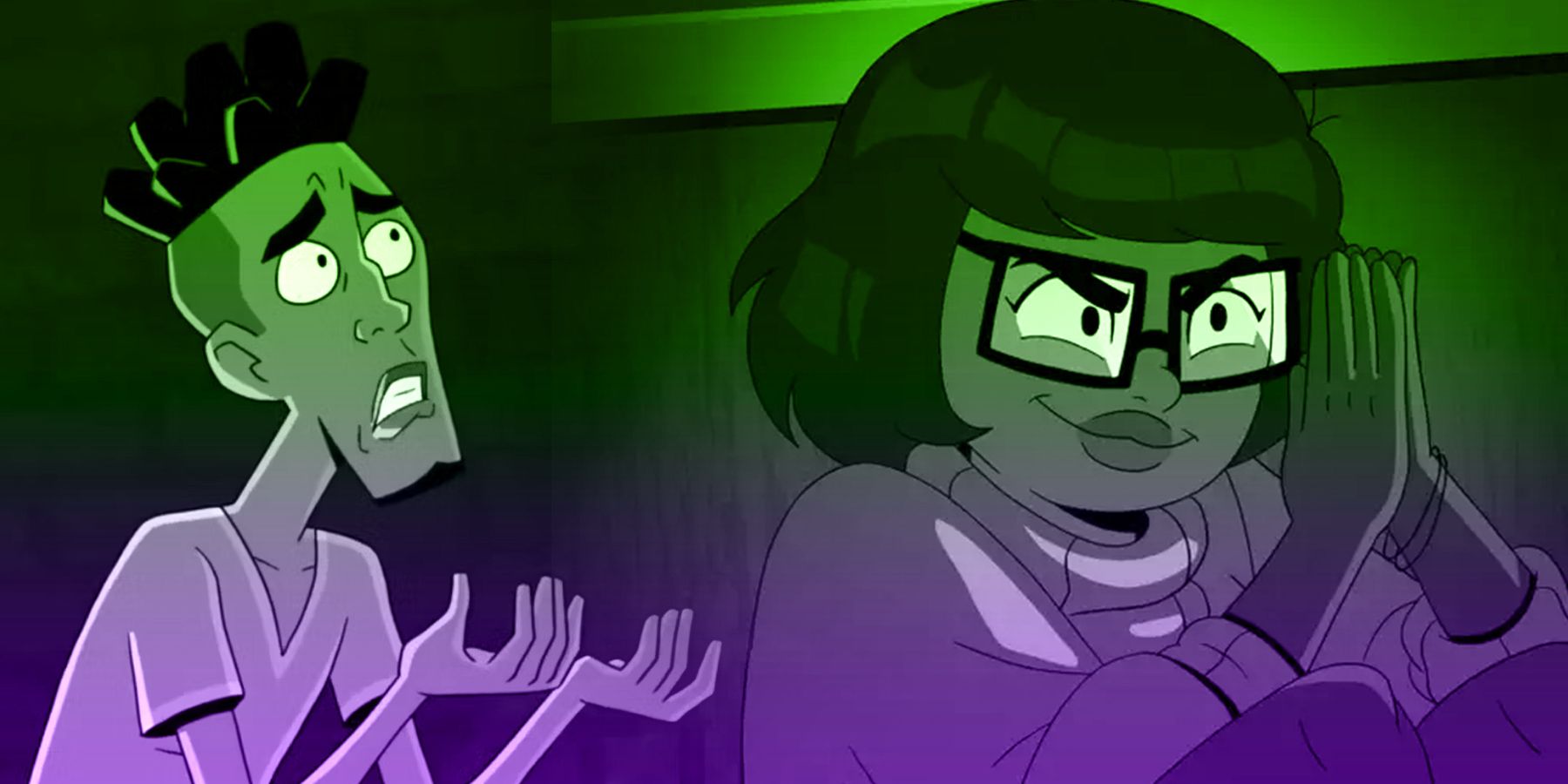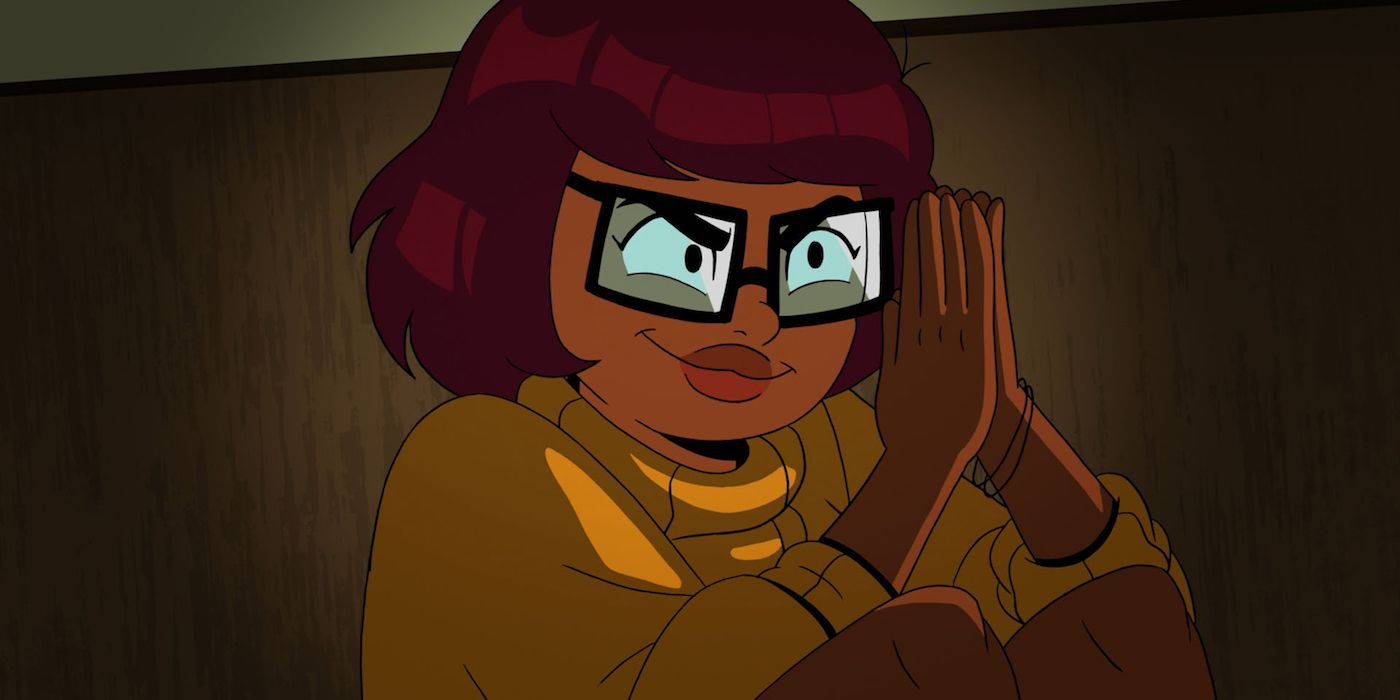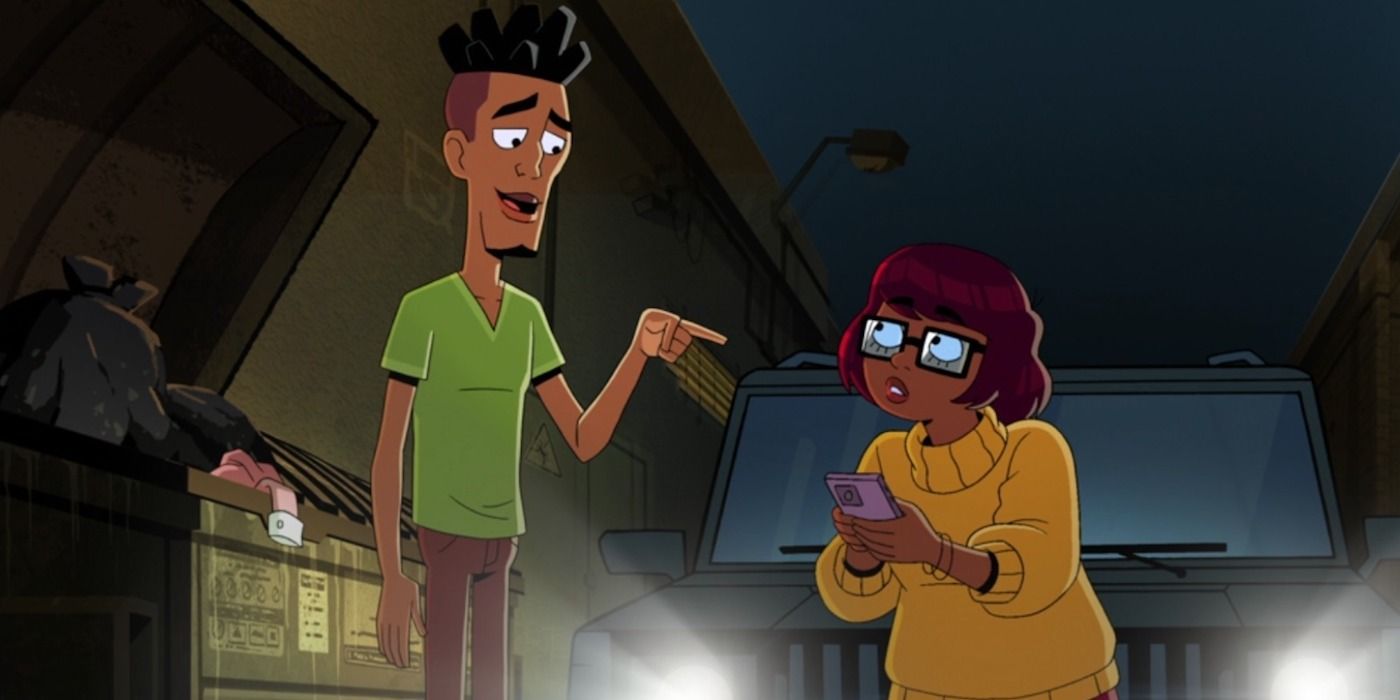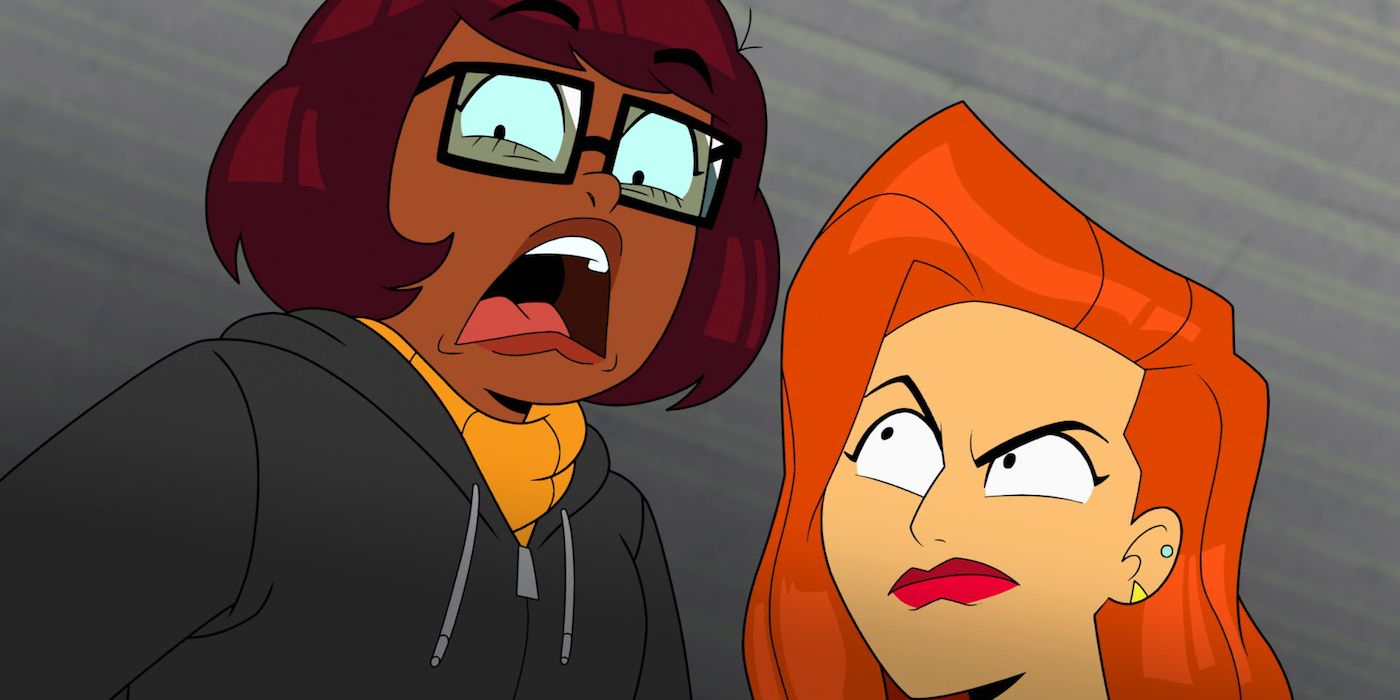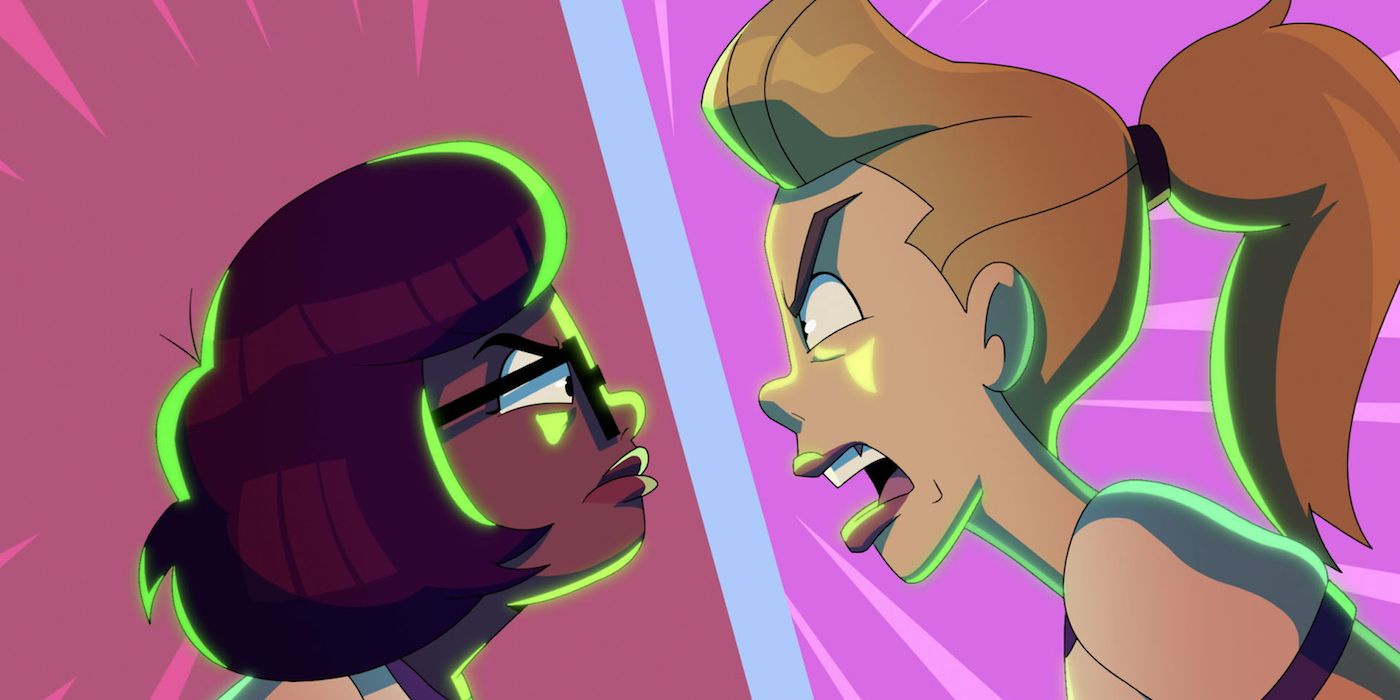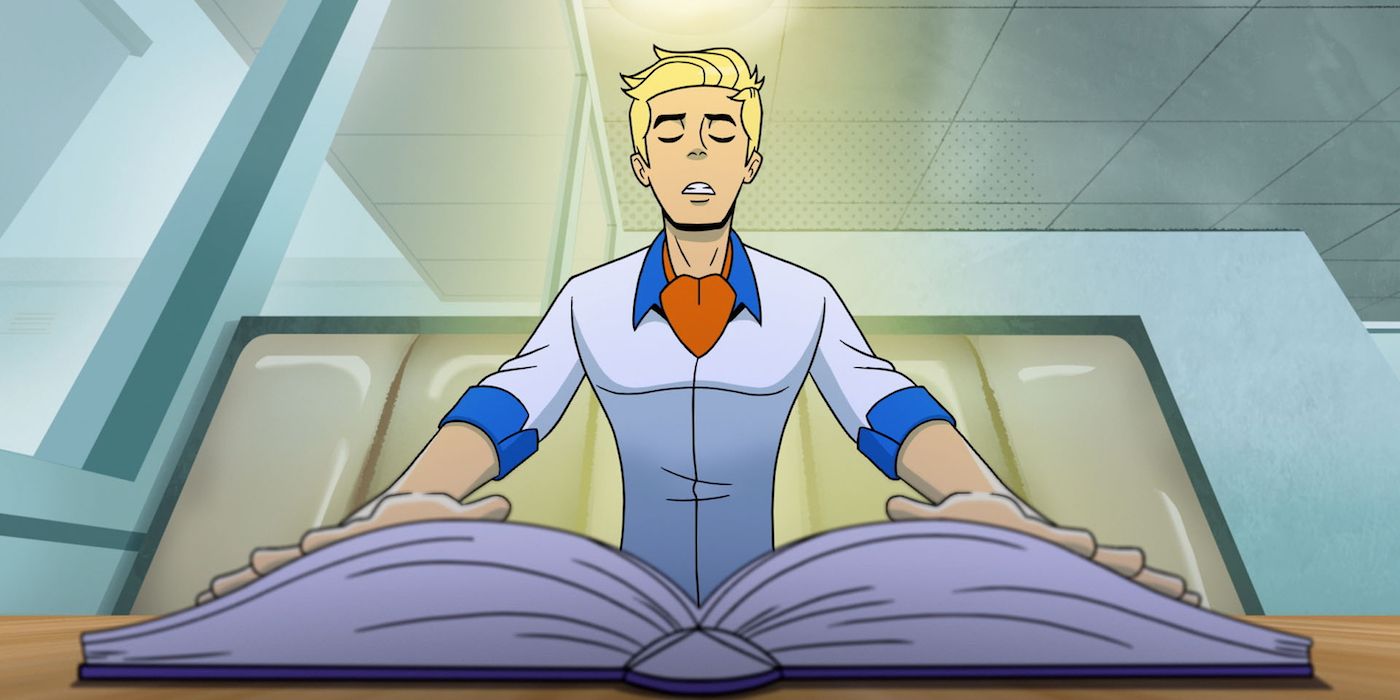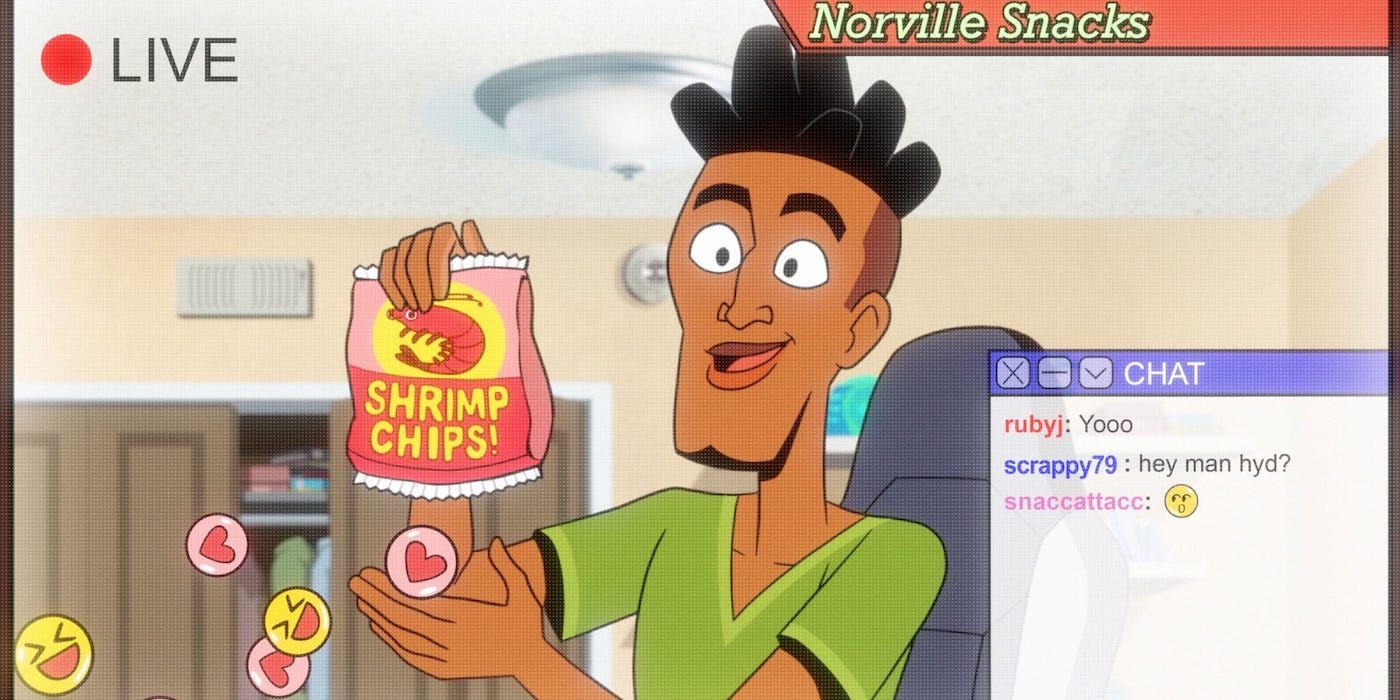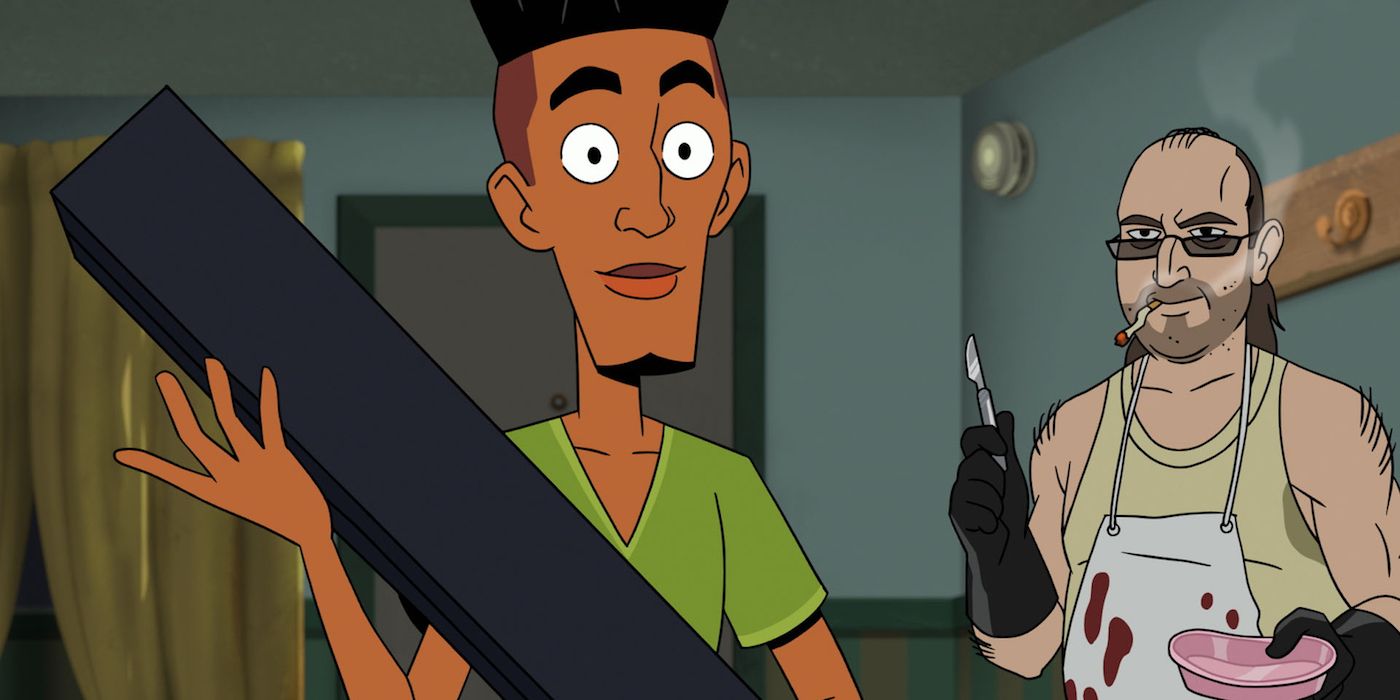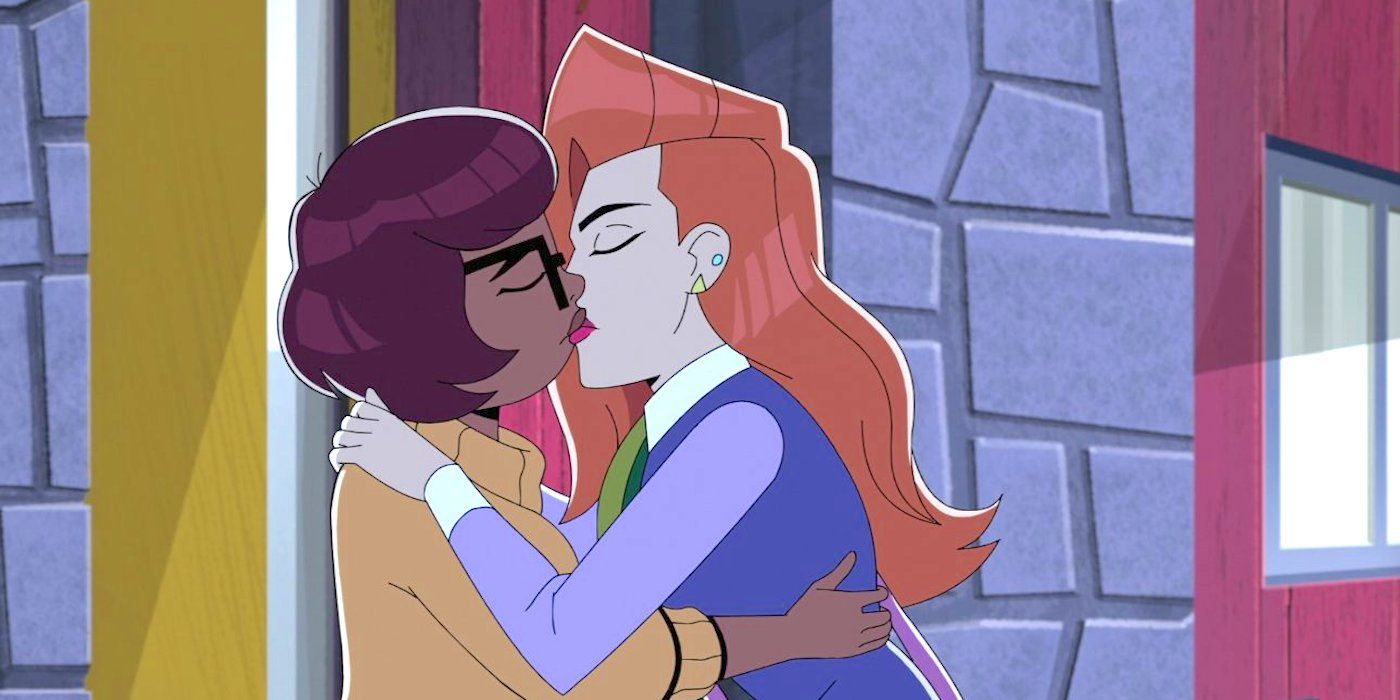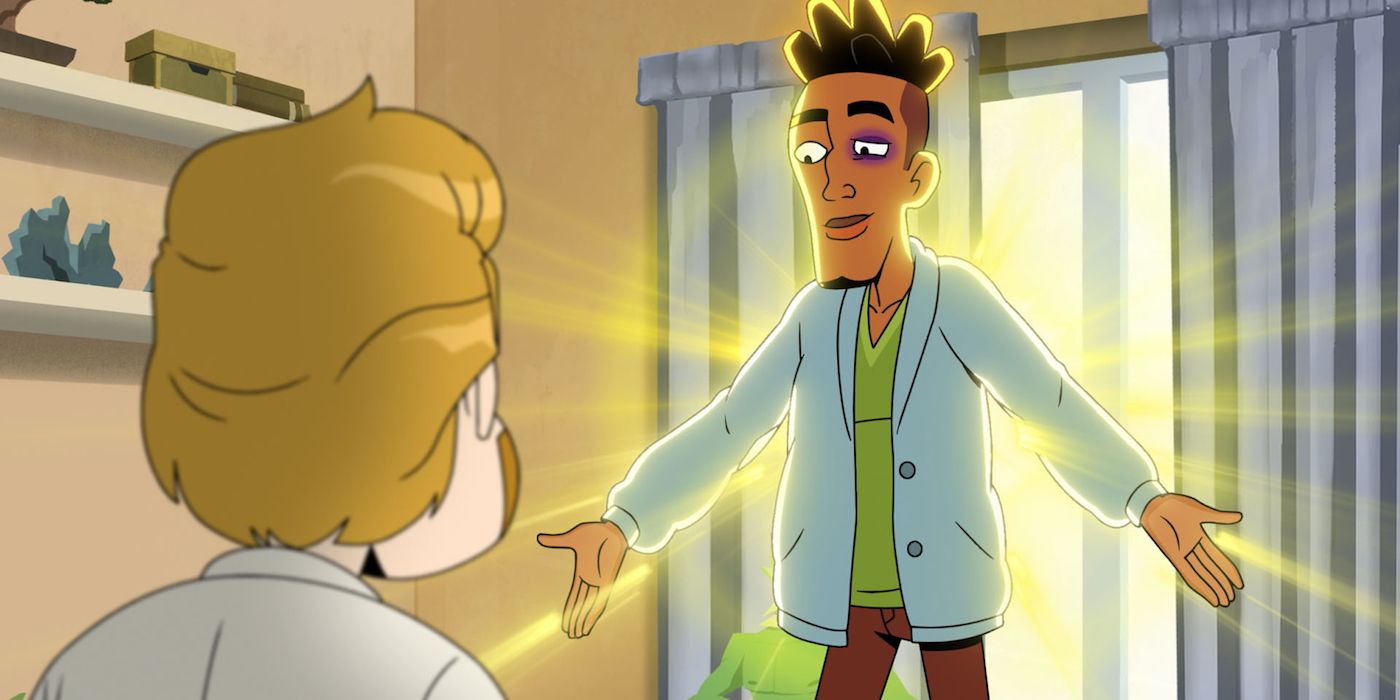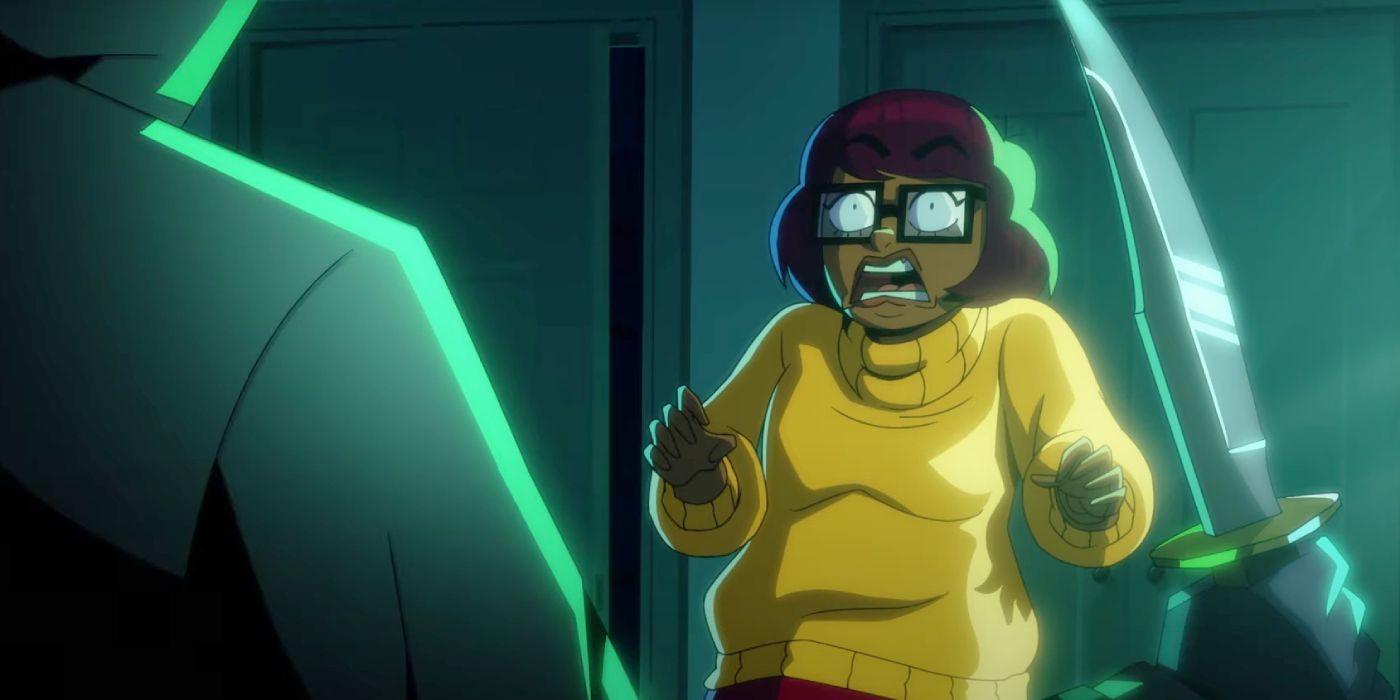Hanna-Barbera's Scooby-Doo continues to entertain audiences more than 50 years after its television debut, but the franchise's latest iteration, Velma, has become the subject of controversy from both dedicated Scooby fans and newcomers alike. HBO Max's Velma comes from Mindy Kaling and Charlie Grandy, who both have impressive comedic resumés.
However, this Velma-centric prequel series doesn't just fly in the face of Scooby-Doo's legacy, but it's also full of problematic issues that are emblematic of broader criticisms towards modern animation. In a time when origin stories and subversive prequel series are common, Velma lacks a clear voice and there are some very valid complaints about the Scooby-Doo reboot.
10 Velma Herself Is Incredibly Selfish & Mean
A common thread throughout Mindy Kaling's television series is that there's usually a self-insert character who represents Kaling's own ideals. In Velma, it's Velma Dinkley, who receives a Kaling-esque makeover.
There's nothing wrong with Velma and her family being represented as South Asian Americans, but what does become an issue is that Velma is just a selfish, toxic character who readily uses her friends to get what she wants. Flawed characters are nothing new and Velma does learn some vital lessons, but it's extremely difficult to root for a character who's so destructive.
9 Velma Has No Scooby-Doo
Velma prides itself in its hot takes on the human members of Mystery Inc., but the biggest omission is that the original series' namesake, Scooby-Doo, is nowhere to be seen in Velma. This isn't to say that a Scooby series without its classic canine is destined to fail, but his presence is sorely missed.
Scooby's absence feels more like a decision to needlessly shatter expectations rather than what makes the most sense for the story. On the plus side, no Scooby also means a lack of Scrappy Doo. However, with Velma's track record, it wouldn't be surprising if Scrappy somehow shows up before his more beloved uncle.
8 Velma Is Heavy On Freewheeling Cynicism
There's a difference between a mean show and a show with mean characters, but a major hurdle that Velma faces is that it seems to seriously hate the idea that it's a Scooby-Doo prequel. There's a free-floating negativity where Velma rages against everything in sigh.
Velma's vitriol reaches a point where it's hard to figure out who its target audience is supposed to be and what it actually cares about. Every individual is mean and punches below their weight. Velma continually mocks Scooby-Doo staples, which only hurts the fans that helped the franchise endure for so long.
7 Velma Has New Characterizations That Are Lazy & One-Note
Velma is far from the first revisionist prequel series that attempts to push stock characters to more nuanced places. There's an argument to be made that Shaggy and the rest of the Mystery Inc. team were never that deep, but they at least cared for each other and there's a consistency in who they are and what motivates them.
Velma's choice to make Daphne a mean bully, Norville a straight-edge and insecure beta, and Fred to be a pampered and useless socialite don't add anything to these characters. They're as one-dimensional, if not even more so, than their '60s counterparts.
6 Voice Acting In Velma Is Lazy
The vocal performances that help bring animated characters to life are often just as important as the visuals and the story being told. Scooby-Doo has been able to resonate with audiences for so long because of the iconic voices that are associated with its characters.
Velma has an all-star cast that features the likes of Glenn Howerton, Constance Wu, and Sam Richardson, but they all seem to be playing themselves as opposed to finding a character in their animated counterparts. If anything, it feels like the characters bend more to their voice actors' characteristics, resulting in forgettable performances instead of inspired takes on classic characters.
5 Scooby-Doo Related Jokes In Velma Don't Make Sense
There are certain expectations for any prequel series to slowly connect the dots to its source material, even if they start in incredibly different places. There's a considerable amount of dissonance between the start of Velma and where the Mystery Inc. crew are when Scooby-Doo begins.
Rather than naturally build to these ideas, Velma instead indulges in plenty of surface-level jokes that evoke the language of Scooby-Doo, but lack any substance. There are allusions to street drugs that have names like "Zoinks" and "G-G-Ghosts," which doesn't make any sense. The government's obsession with "meddling kids" is also much messier than it needs to be.
4 Velma Has Inconsistent Character Designs & Styles
Velma is a series that looks absolutely gorgeous and Warner Bros. Animation has figured out how to create stylized and surreal visuals that bring out Velma's genre sensibilities. As a whole, Velma's aesthetic decisions are strong but their inconsistent and can't seem to settle on a single visual style.
Velma's characters have incredibly eclectic styles that make some individuals look like they're from Steven Universe, while others are reminiscent of contrasting animated series like The Venture Bros. or Big Mouth. It's important for there to be symmetry between characters and environments, but so much of Velma looks like it was designed in a vacuum.
3 Velma Problematically Handles Sexuality
Velma wastes no time in establishing its "edgy" attitude geared towards a mature demographic. A Scooby-Doo show that's full of graphic violence and copious sexuality could work in the right context, but Velma is edgy for the sake of it rather than finding a justified reason for this newly extreme material.
Velma begins in a girls' locker room and the show frequently lingers on scantily-clad female characters. Unfortunately, Velma also makes it clear that these are all teenagers, which pushes the mature content into murky territory. Furthermore, the subtle handling of LGBTQ+ themes in Scooby-Doo gets traded for messy experimentation and the baiting of certain communities in Velma.
2 Velma Is Too Serialized & Lacks Episodic Mysteries
The rise of binge-watching and full-season dumps on streaming services has increased serialized storytelling. Velma is deeply reliant on this structure and practically every installment goes out on a cliffhanger that helps contribute to the season's larger mystery. Velma doesn't always fumble its storytelling, but it's antithetical to Scooby-Doo's monster-of-the-week format.
Scooby-Doo is at its best when it showcases random mysteries and possibly paranormal activity. Velma is so entrenched in its ongoing narrative that there's little incentive to tune in if it doesn't connect with viewers. More episodic content would at least push audiences to watch a few more installments before jumping ship.
1 There Are Smarter Scooby-Doo Parodies & Deconstructions Out There
Velma immediately leans into the idea that it's not just a deconstruction of Scooby-Doo, but that it's also actively a meta and self-aware parody of this classic animated mystery series. Something like Velma could stand out if this angle was never tackled before, but there are already a handful of superior Scooby satires that make Velma's perspective unnecessary.
Scooby-Doo! Mystery Incorporated still holds the record for a brilliant Scooby satire. However, even outside series like Supernatural or The Venture Bros. contain more passionate parodies that are more in line with the original Scooby-Doo series' voice.

